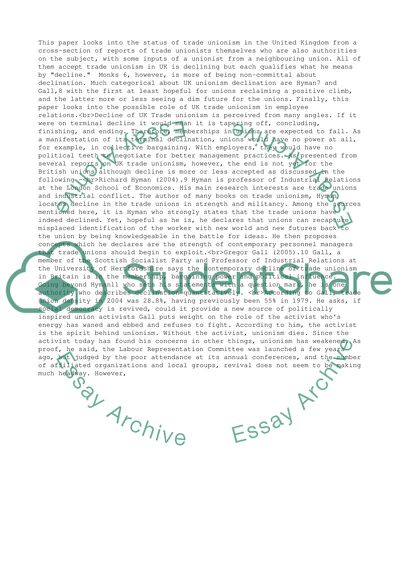Cite this document
(“Trade Unionism in the United Kingdom Essay Example | Topics and Well Written Essays - 3000 words”, n.d.)
Trade Unionism in the United Kingdom Essay Example | Topics and Well Written Essays - 3000 words. Retrieved from https://studentshare.org/business/1520665-trade-unionism-in-the-united-kingdom
Trade Unionism in the United Kingdom Essay Example | Topics and Well Written Essays - 3000 words. Retrieved from https://studentshare.org/business/1520665-trade-unionism-in-the-united-kingdom
(Trade Unionism in the United Kingdom Essay Example | Topics and Well Written Essays - 3000 Words)
Trade Unionism in the United Kingdom Essay Example | Topics and Well Written Essays - 3000 Words. https://studentshare.org/business/1520665-trade-unionism-in-the-united-kingdom.
Trade Unionism in the United Kingdom Essay Example | Topics and Well Written Essays - 3000 Words. https://studentshare.org/business/1520665-trade-unionism-in-the-united-kingdom.
“Trade Unionism in the United Kingdom Essay Example | Topics and Well Written Essays - 3000 Words”, n.d. https://studentshare.org/business/1520665-trade-unionism-in-the-united-kingdom.


